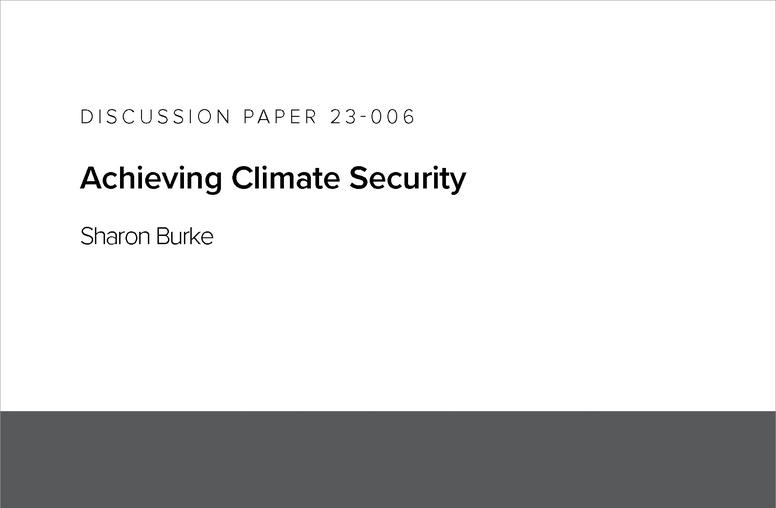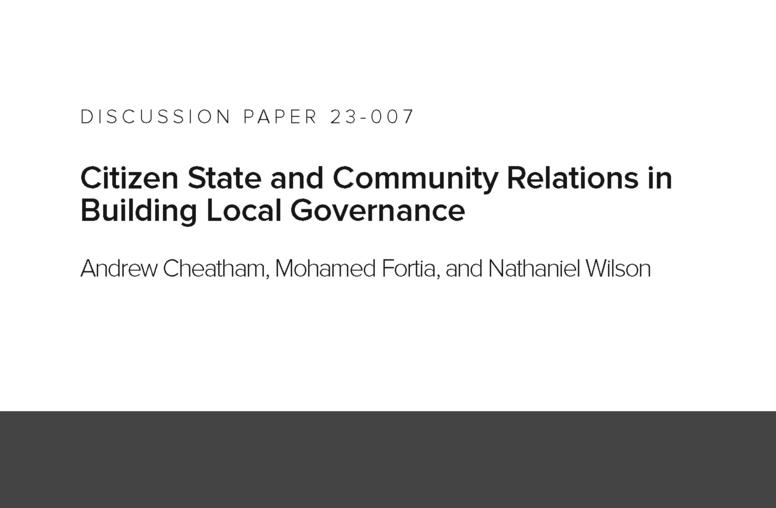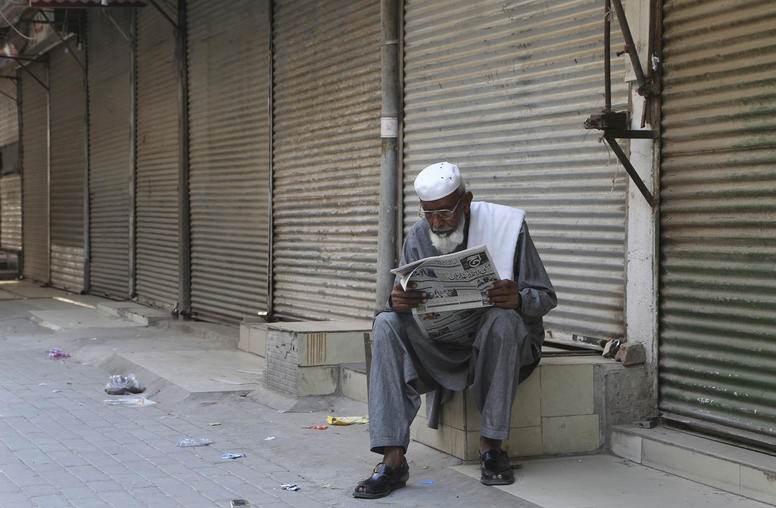Publications
Articles, publications, books, tools and multimedia features from the U.S. Institute of Peace provide the latest news, analysis, research findings, practitioner guides and reports, all related to the conflict zones and issues that are at the center of the Institute’s work to prevent and reduce violent conflict.

Mary Speck on Guatemala’s Watershed Elections
Ahead of the country’s second-round presidential elections later this month, USIP’s Mary Speck explains how judicial interference has injected chaos into the country’s democratic process. There are concerns that Guatemala’s democratic backsliding could reverberate throughout Central America. “What happens in Guatemala can affect the whole region.”

Achieving Climate Security
The ambition of civilian leaders at the Pentagon to bring climate security policy to scale quickly is running into the shoals of a peculiar reality: climate security as a concept is not well defined and controversial, even as climate impacts on societies are mounting. There is clearly a connection between the effects of a changing climate and security—security both in the broadest sense of the safety and well-being of human societies and in the narrower sense of threats to civil order—but there is insufficient climate security research and analysis to guide policy.

Dean Cheng on China-Philippines Confrontations in the South China Sea
Tensions between China and the Philippines over control of Second Thomas Shoal have become the focal point of China’s increasingly aggressive efforts to assert dominance over the South China Sea, says USIP’s Dean Cheng: “Essentially what [China] is saying is that huge swath of ocean … is somehow Chinese waters.”

Citizen State and Community Relations in Building Local Governance
Since the revolution in 2011 and the toppling of the long-standing regime of Muammar Gaddafi, Libya has experienced various degrees of political instability and conflict. A succession of internationally supported “transitions” have failed to bring the Libyan people a functioning state with a clear social contract based on a shared vision for the nation. This paper discusses the present challenges for good local governance as perceived by Libyan citizens and institutional actors. Through this lens, recommendations are offered for immediate, short-, and medium-term initiatives that can support the improvement of citizen relations with the three traditional arms of the state—the legislative, executive, and judicial branches.

Mirna Galic on the U.S.-South Korea-Japan Summit
While last week’s summit of U.S., South Korean and Japanese leaders may have been historic, the three countries hope “to really institutionalize trilateral cooperation going forward” through joint diplomatic and security initiatives that present “a stronger, united front” in the Indo-Pacific, says USIP's Mirna Galic.

Henry Tugendhat on the Geopolitical Impact of BRICS Expansion
The expansion of BRICS is a significant step in the bloc’s push to counterbalance the Western-led international order. But as a consensus-based group, “the question remains to what extent will they agree on what [that] alternative world order might look like,” says USIP’s Henry Tugendhat.

Tegan Blaine on the COP27 Climate Conference
As COP27 continues in Egypt, USIP's Tegan Blaine says, "The one issue that is really beginning to explode this year is the issue of loss and damage" and support for poorer countries. "They weren't responsible for the cause, and they don’t have the resources to [address climate change] on their own."

Lucy Kurtzer-Ellenbogen on Israel’s Election
A coalition involving several extreme right-wing parties has Benjamin Netanyahu poised to return as Israel’s prime minister. “In some sense he owes them a debt,” says USIP’s Lucy Kurtzer-Ellenbogen. “What is the cost being extracted by these right-wing parties” as the government formation process begins?

Losing Facts to Fiction: Nationalism, Misinformation, and Conspiracy Theories in Pakistan
Misinformation and conspiracy theories have become staples of mainstream politics in numerous countries around the world—democracies and autocracies alike. Pakistan is no exception. This report examines the causes of pervasive belief in misinformation in Pakistan—particularly nationalistic misinformation—and the consequences for the country’s relations with its neighbors, the risk of international or domestic conflict, and attitudes toward Pakistan’s many ethnic minority groups. The report also discusses steps that policymakers can take to counteract misinformation.

Event Extra: Syria’s Brutal Civil War and the Elusive Quest for Justice
In 2016, the U.N. General Assembly established the International, Impartial and Independent Mechanism for Syria (IIIM), after vetoes in the U.N. Security Council prevented referral of the Syrian situation to the International Criminal Court. IIIM Head Catherine Marchi-Uhel discusses the obstacles to this work, the progress made to date and what lessons it can provide for delivering accountability and justice in other conflicts.